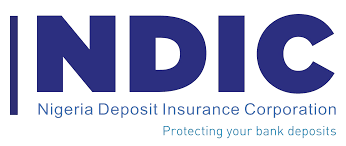
The Chairman, Presidential Committee on Fiscal Policy and Tax Reforms, Mr. Taiwo Oyedele, has described the nation’s current tax system as archaic and unconducive for growth.
Mr. Oyedele spoke at the 2025 Annual General Meeting (AGM) of the Finance Correspondents Association of Nigeria (FICAN) at the weekend in Abuja.
“Nigeria’s tax system is unconducive for growth, with multiplicity of taxes and taxing agencies, and high corporate tax burden on businesses, taxing poverty, capital and investments, and using archaic laws and ambiguous provisions,” he said.
He noted that the tax systems in Nigeria would not take the country anywhere, necessitating the ongoing reforms to be at par with other developed nations of the world.
Speaking on a topic: “Tax Reform as a Pillar for Nigeria’s Economic Prosperity”, Mr. Oyedele said the proposed reforms were intended to reduce business risks, lower tax burden, usher in a competitive tax regime, provide economic reliefs, and create opportunities for businesses and households.
On the impacts of the proposed tax reforms on the government, the Tax Reforms Chairman said the reform would ensure macroeconomic stability, catalyse economic growth, improve revenue mobilisation, lead to improved tax to GDP ratio, healthy fiscal balance, enhanced credit rating and lower cost of debt, and equity and fairness between government and taxpayers.
Corroborating Oyedele, an Economist, Dr. Paul Alaje, said tax reforms aim to enhance the economic and social benefits that the tax system may provide while also increasing the effectiveness of the collection.
Dr. Alaje added that tax reforms have been discovered to be of great importance as it helps to finance infrastructure, reduce debt burden and facilitate development in a nation.
He said the new tax reform bill seeks to address issues around multiple layered taxation, broaden the tax base and streamline and integrate different tax laws.
“The new Nigeria tax bill consolidates multiple tax laws and introduce a progressive personal income tax where earnings up to N800,000 are exempt; the next is 2.2million is taxed at 15%, the following, N9 million at 18%, the subsequent N13 million at 21%, the next is N25 million at 235, and incomes above 50 million at 25%-ensuring higher earners pay more. Zero tax for companies with a turnover of less than 50 million.
“For corporate entities, tax rates are reduced from 30% TO 27.5% in 2025 and further to 25% in 2026 for larger companies, while small businesses with turnover below 50 Million remain exempt,” he explained.
Dr. Alaje, however, expressed concerns that the Valued Added Tax (VAT) rates, rising from 10% in 2025 to 12.5% in 2026 in the proposed tax reforms has raised fears of exacerbating inflation.
He listed other concerns to include, regional economic disparities, implementation challenges, and economic burden on small businesses.
He submitted that addressing these concerns through comprehensive stakeholder consultations and phased implementation strategies was crucial to ensure the reforms achieve their intended economic benefits without unintended adverse effects.






